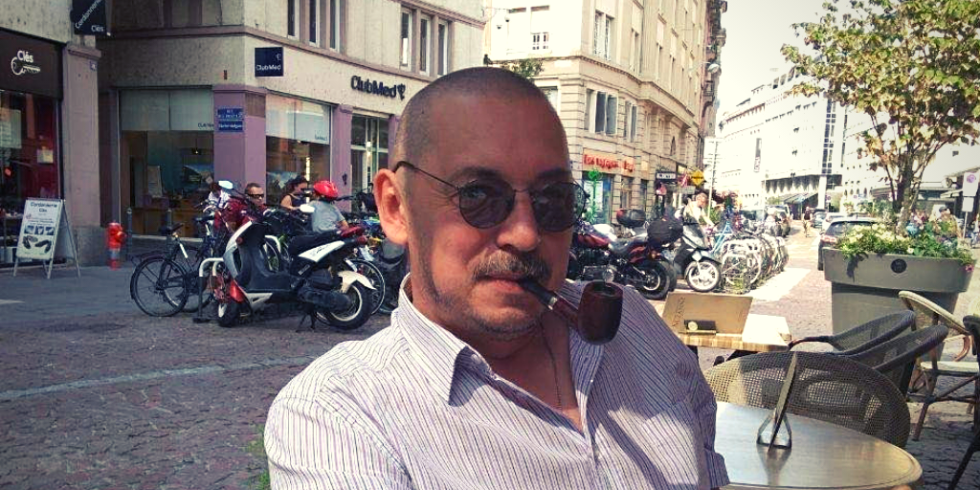
Denis Korotkov is a Russian journalist who has systematically followed the trail of oligarch Yevgeny Prigozhin, “Putin’s chef”, worldwide: From the “troll factory” in St. Petersburg to the activities of the military organisation known as the Wagner Group in Syria and in Africa.
Denis Korotkov’s investigations appear on a regular basis in the independent newspaper Novaya Gazeta. He has previously also worked for Fontanka, an online news portal in St. Petersburg.
In this exclusive interview, Denis Korotkov discusses the problem of disinformation and propaganda as well as the role investigative journalism plays in Russian society. He shares some of the tricks in his professional journalistic toolbox and tells why he plans to continue his work in spite of receiving threats and being targeted with intimidation and disinformation.
For an overview Denis Korotkov’s investigations for Novaya Gazeta related to Yevgeny Prigozhin’s businesses, see the bottom of the article.
Propaganda vs. agitation
Q. First a question about terminology: When we talk about the information strategy of the Russian state media and what we see on the federal television channels, which term do you prefer: propaganda, fakes, disinformation? Or another term? And why?
A. Any term works – it’s all about definitions. Honestly, I only watch state television out of professional necessity, and this happens extremely rarely, so I can’t say that I prefer one or another term.
But I think that propaganda and fakes are two different things. The word “propaganda” does not necessarily carry a negative connotation. Propaganda is an attempt to convince an audience of the benefits of some values or an ideology through argument. It is precisely this argumentation that makes propaganda different from agitation, as they used to tell us in the classes on the history of the Communist Party of the Soviet Union.
If we are talking about fake news, then there are also different levels: It is important to distinguish between simple replication of unverified information or rumours, on the one hand, and conscious fabrication of news on the other.
The greatest country in the world
Q. Which are the main aims of disinformation and propaganda in today’s Russia, in your opinion?
A. The aim seems very obvious to me. If we talk about the state TV channels, as well as the internet resources that are inextricably linked to them, their main task is to convince the population that we live in the greatest country in the world. A country that is rushing forward by leaps and bounds and compares favorably with all other countries – both in its unimaginable wisdom; in how selflessly our rulers care about the people and in all kinds of successes in all existing sectors.
That’s all; in fact, this is the sole task of these media outlets. Naturally, I am talking about the media outlets that speak to the internal Russian audience.
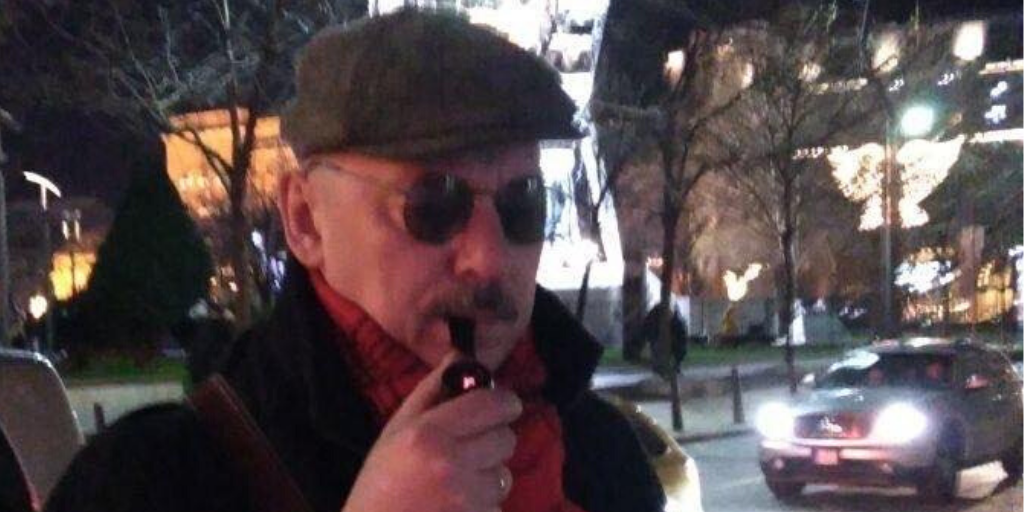
And although it has recently become fashionable to say that the internet has defeated television, people somehow forget that state-owned media are present not only on television, but also on the internet.
Decisions regarding Mr. Prigozhin can only be made on the highest level
Q. Now let’s talk about your work. You have been engaged in investigative journalism for a long time, including writing a lot about the structures of Yevgeny Prigozhin. Can you give an example of what your revelations have led to? Have they ever had concrete consequences?
A. I can give numerous examples of consequences of investigations in which I have been involved or participated: there have been cases when people have been removed from office, criminal proceedings, termination of contracts with the authorities, and so on.
But there is one exception: none of these stories have concerned Mr Prigozhin in any way. With regards to state bodies taking any measures, all my investigations related to the activities of Prigozhin have led to nothing.
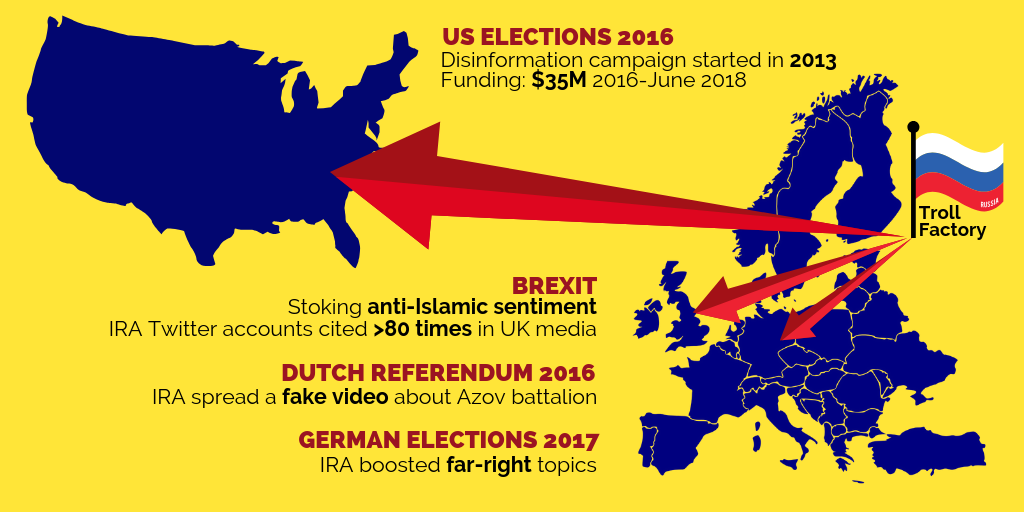
At one time, in 2016 I think it was, I wrote about energy supply contracts for the armed forces – boiler houses, water supply, etc. – and then some military prosecutors tried to take some measures to hold Prigozhin’s structures accountable; but eventually, that didn’t lead to anything either.
Q. Why do you think it is so? How can this be explained?
A. Firstly, I have the impression that decisions regarding Mr. Prigozhin can only be made on the highest level of the Russian Federation. Okay, I won’t use euphemisms, I’ll be frank with you and say that this is our president, Mr. Putin.
And, accordingly, even if some kind of action from the side of law enforcement officers is still possible at the grassroots level, then higher up in the system, they understand very well who they are dealing with, and they simply do not dare to do anything without approval from the highest level – which they, apparently, do not even want to take the risk of contacting.
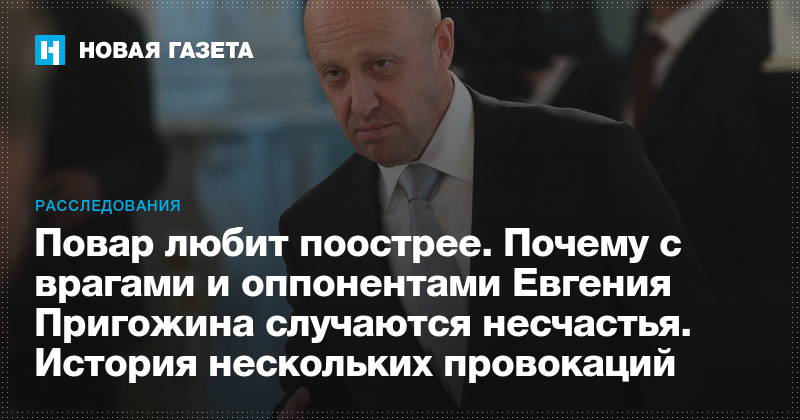
Moreover, in this whole story with military contracts – multibillion contracts, by the way – both myself and the Anti-Corruption Fund [led by Alexei Navalny] have provided irrefutable evidence that they were made with gross violations. These violations are obvious to anyone, purely arithmetic, you do not need to be a highbrow lawyer to detect them. But, nevertheless, everything vanished into thin air.
Or take the activities of the Wagner group, which is usually called a private military company, although of course, it is not a private military company. What kind of actions on the part of the authorities can we expect if the training base of the Wagner group is located in Molkino, that is, it is directly adjacent to a Ministry of Defence brigade? All it would take for a military prosecutor would be to climb over the fence and ask: hey guys, what are you doing here with these military grade weapons?
I cannot be responsible for how information will be used
Q. So we see that journalistic investigations do not always lead to direct consequences – in that case, what primary goals does it serve? Can it offer any real competition to the state propaganda?
A. As for competition – definitely, it not only can, but also successfully does provide competition. However, to be honest, I am far from the opinion of many of my colleagues who see it as their vocation to change the world.
I am not a politician, nobody elected me, not a single person ever voted for me anywhere. Nobody entrusted me with anything beyond what is stipulated by my work contract, namely: to bring up-to-date and truthful information to citizens, and to try to do it professionally and in an interesting way. That’s it, on this my task is one hundred percent completed.
Everything I have been able to find out, I have brought to society, so now people know it. I cannot be responsible for how this information will be used, how society will handle it.
Work all day, knock on every door
Q. It would be interesting to hear about some of the methods that you use in your investigations. Do you have any particularly successful tricks you can share?
A. You know, I once had to infiltrate a group of swindlers who were engaged in fraud under the guise of network marketing, and their main slogan was: “work all day, knock on every door”. And sometimes I catch myself thinking that this is my method – it can hardly be called intellectual, of course, but nonetheless.
If we turn every stone, we’ll achieve a result. It’s just that my reader doesn’t see – and it’s very good that it is so – the amount of slag that remains outside the publication, all the planned but never implemented projects, the amount of work that was wasted because it just didn’t lead to any conclusion.
Moreover, it seems to me that recently, many of my colleagues and myself have been excessively keen on searching for open source information online – there are such registries, or various internet resources, and there’s so much to be learned from Facebook if you apply certain tools.
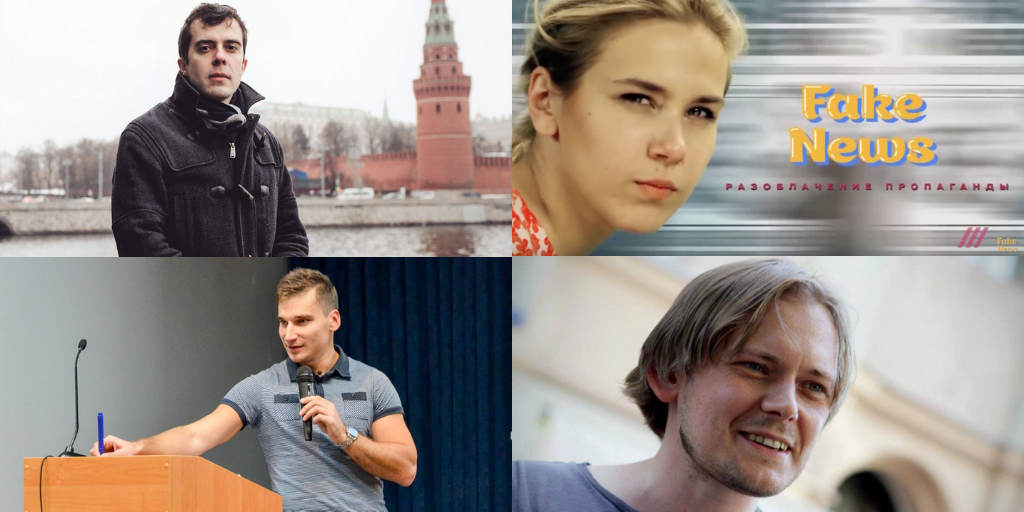
This is all wonderful, this is good, it is very necessary; but still, nothing beats the good old inside source. Nothing will be able to replace a person, and it is thanks to this circumstance I think that journalism is here to stay, despite the fact that they say that it is dying and Instagram will prevail.
No one in United Russia will say that they are for corruption
Q. Since we are talking about readers – for whom are you writing? For example, when you write about Prigozhin’s structures? As a journalist, you probably imagine your reader – who is he, who is she?
A. Here I sometimes make mistakes, because I have obviously been imagining my reader as a progressive-minded person with a higher education.
However, it turned out that this is not always the case, and I see that even those people who are not ideologically close to me, people with whom I may not agree in many respects, they also perfectly understand the issues I am writing about.
You see, in fact, almost any of my texts could be posted on the website of [the ruling party] United Russia. The truth is, in my articles there is nothing that would contradict their party programme. After all, no one in United Russia will say that they are for corruption, or for committing war crimes, or for stealing on government contracts. In its programme, United Russia stands for exactly what I am writing about.
Danger and courage in Chechnya
Q. Besides your own investigations, whose work among your colleagues would you single out as worthy of recognition?
A. I don’t consider myself entitled to make such kind of judgments, I’m very afraid to forget or offend someone, although, of course, there are many guys whom I admire.
Well, if you take Novaya Gazeta, then it will be Elena Milashina’s investigations – trust me, that is an example of serious courage. The danger she faces in her investigations around Chechnya is very high.
I intend to continue my work
Q. We know – and we have written about it on EUvsDisinfo – that you have been personally intimidated because of your work. Are you afraid for your safety today? Have you considered stopping your investigations?
A. Of course, I intend to continue my work. Otherwise, how would it look – a journalist writes something, all sorts of paid trolls attack him, and he immediately gives up: “I’m scared, I won’t do it anymore”? That is not a serious approach. What am I supposed to do now? Leave the profession, or something? That would be strange.
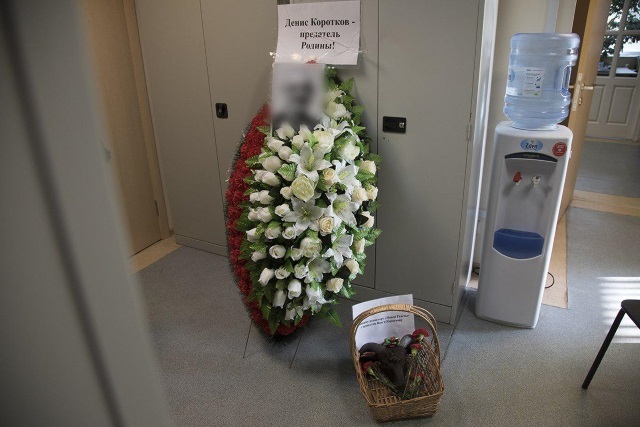
In fact, I even note with satisfaction that Prigozhin’s resources have opted for making all sorts of slanderous statements against me to the Investigative Committee – that’s wonderful, and it’s much better than other methods. They are mean, yes, but this is more or less civilised.
Now, for example, the Investigative Committee, after a publication from RIA FAN [a media outlet controlled by Yevgeny Prigozhin], is checking to see if I am connected with Islamic State. I still haven’t fully understood this scheme: either Mikhail Khodorkovsky pays money to ISIS, or ISIS pays money to Khodorkovsky, and I’m either an intermediary between them, or someone else. In short, this is the kind of construction the Investigative Committee is now busy trying to sort out – well, that’s fine with me, I say let them investigate.
Following the disinformation about ISIS connections, Mr Korotkov and Novaya Gazeta have filed a lawsuit against RIA FAN for defamation.
SELECTED INVESTIGATIONS BY DENIS KOROTKOV FOR NOVAYA GAZETA RELATED TO YEVGENY PRIGOZHIN
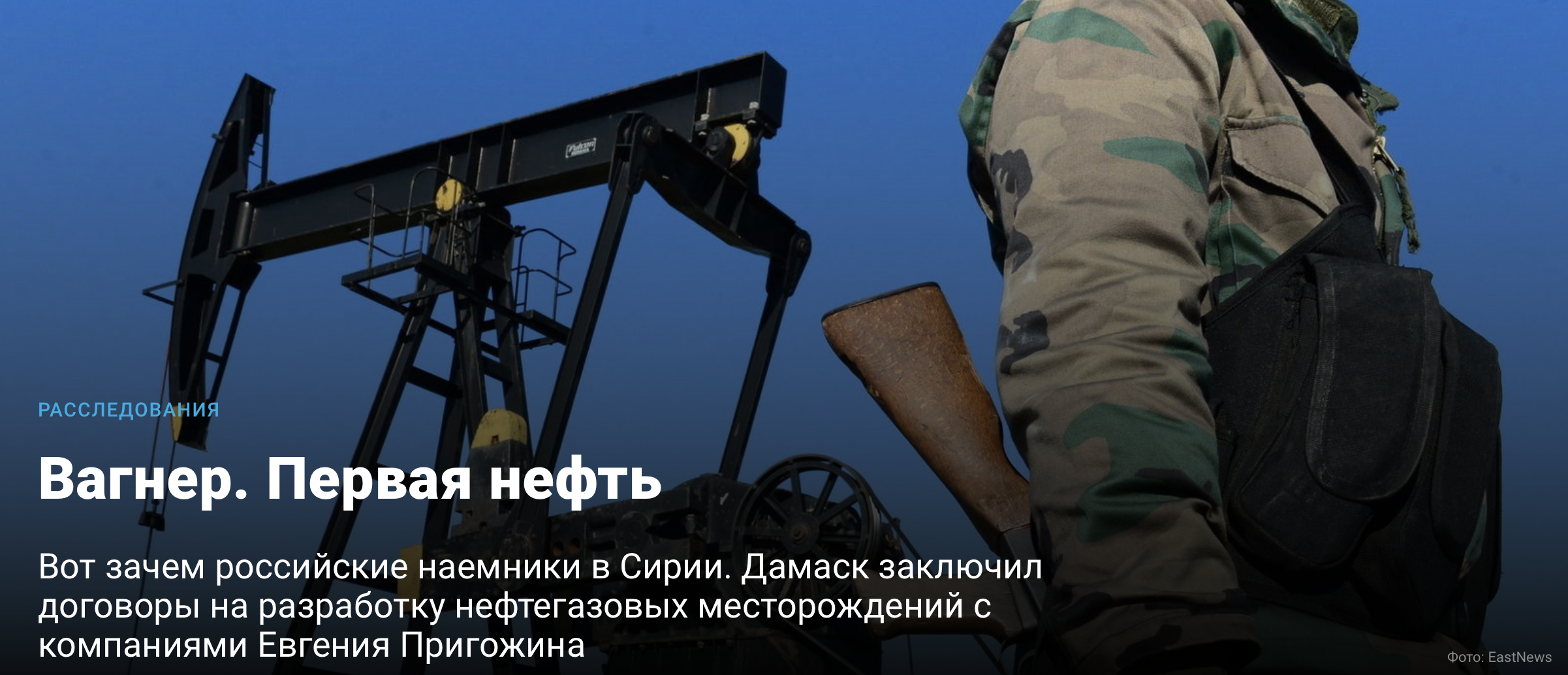
WAGNER. FIRST OIL
Here is why there are Russian mercenaries in Syria. Damascus has signed oil and gas field development agreements with companies belonging to Yevgeny Prigozhin. Full Russian article; English summary
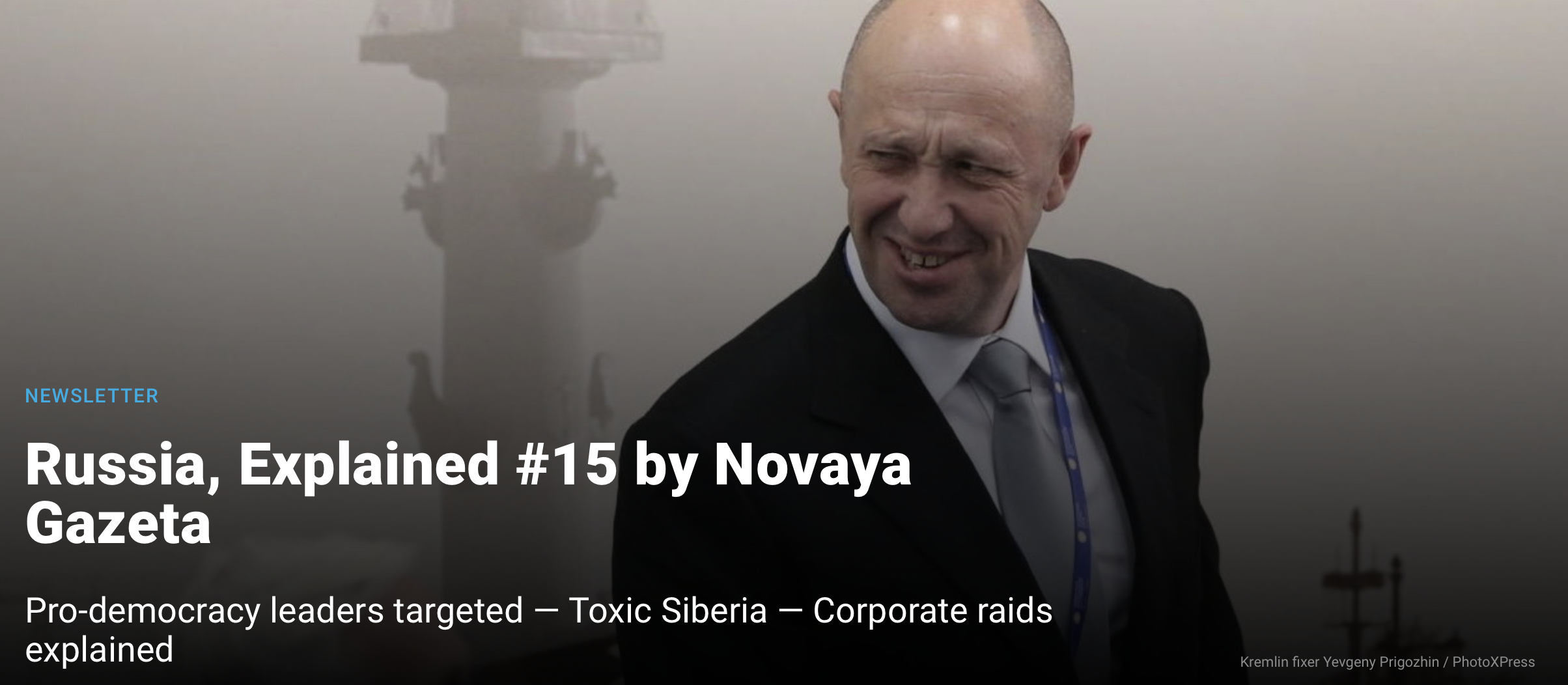
WHO FOILED THE ELECTIONS TO THE MOSCOW CITY DUMA AND HOW
“Novaya Gazeta” gained access to reports by hired provocateurs. Full Russian article; English summary
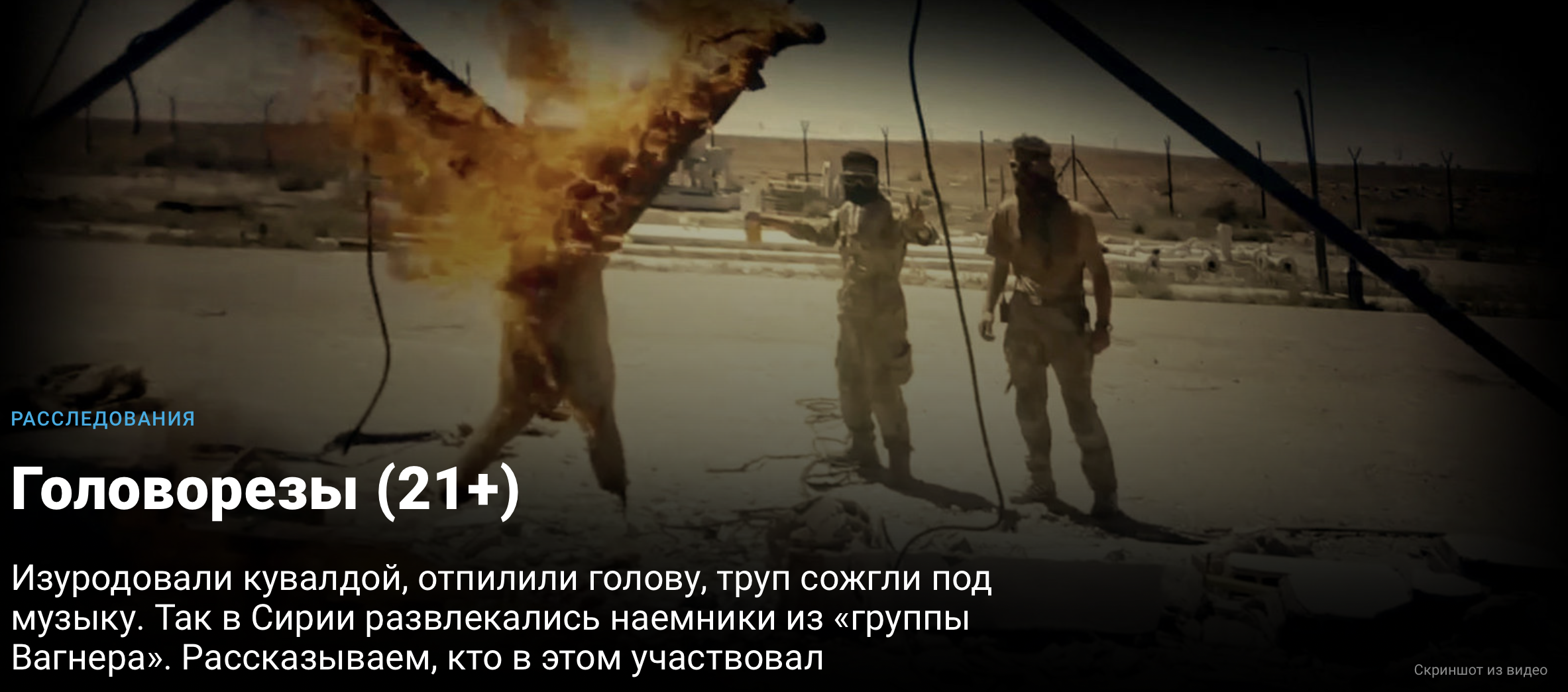
CUTTHROATS (21+)
They mutilated him with a sledgehammer, sawed off his head, burned the corpse to the sound of music. How mercenaries from the Wagner Group enjoyed themselves in Syria. Full Russian article; English summary.

FLY CONCORD
Yevgeny Prigozhin’s US sanctioned business jet transports high-ranking military officials from Sudan and Russia. Full Russian article; English summary
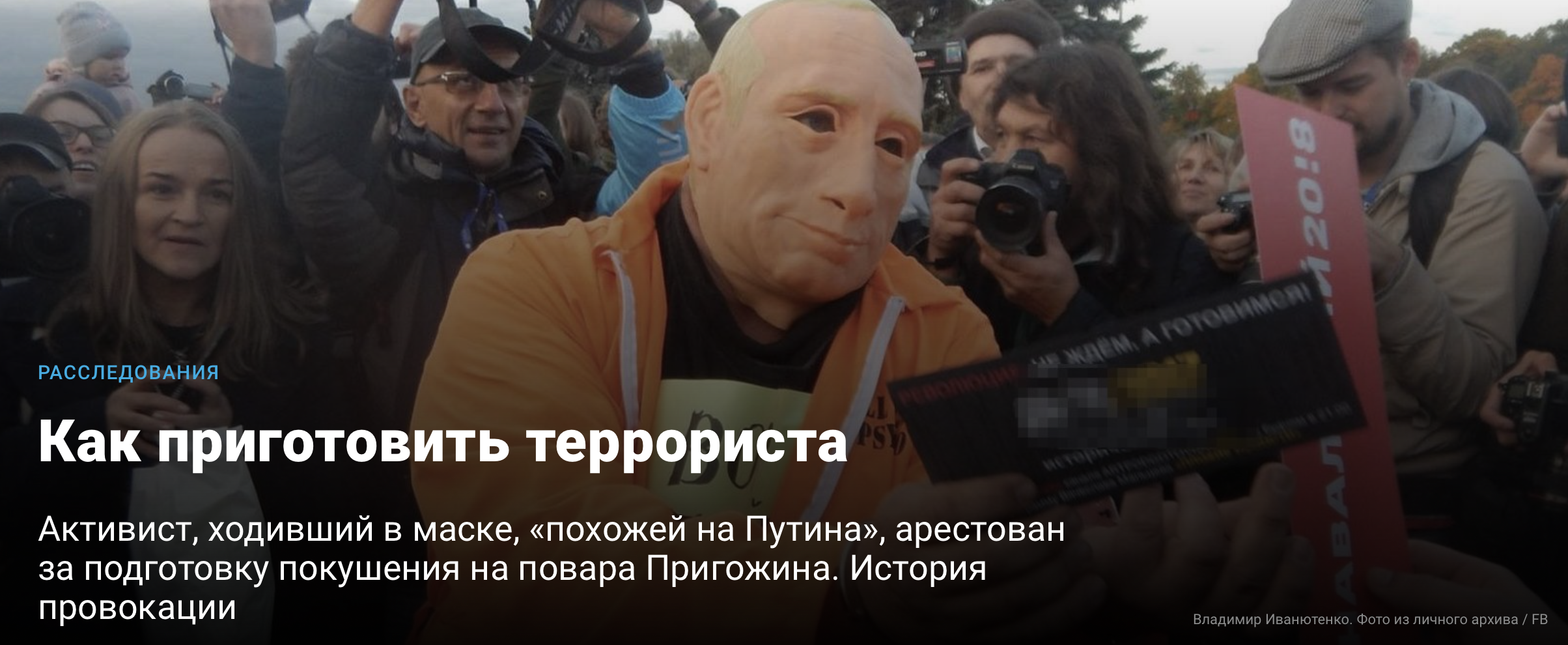
HOW TO PREPARE A TERRORIST
Activist who wore a mask “resembling Putin” arrested for preparing to assassinate Prigozhin’s cook. The history of a provocation. Full Russian article; English summary

CHRONICLE OF A WELL-PLANNED DEATH
Who killed the Russian journalists in the Central African Republic? Investigation of the Dossier project. Full Russian article; English summary

THE CHEF LIKES IT HOT
Why enemies and opponents of Yevgeny Prigozhin meet with accidents. The Story of several provocations. Full Russian article; English summary.
Top image: Private photo.




